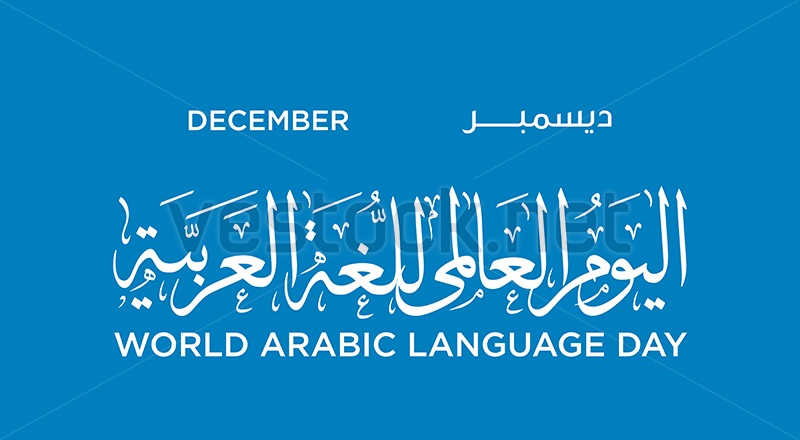Happy International Arabic Day
On 18th December 1973, the United Nations General Assembly designated Arabic as the sixth official language of the United Nations. Thus the date was set to celebrate the Arabic language worldwide annually. Arabic is one of the few surviving Semitic languages with more than 300 million native speakers, and it is destined to survive up […]

On 18th December 1973, the United Nations General Assembly designated Arabic as the sixth official language of the United Nations. Thus the date was set to celebrate the Arabic language worldwide annually.
Arabic is one of the few surviving Semitic languages with more than 300 million native speakers, and it is destined to survive up to the great beyond! It has solid grammatical rules and dynamic derivational methods that allow it to form new words whenever the need arises.
Many European languages borrowed a great proportion of their words from Arabic whether directly or indirectly.
Arabic literature also has a significant effect on English literature. Professor Abdullahi Attayyib, in one of his lectures in Qatar, organised by “Naadee Aljasrah” on November 19, 1991, mentioned that ‘rhyming ‘ with its different forms such as rhyming caprice and head rhyme in European poems were borrowed from Arabic literature. The stories of “Maqaamaat Alhareeree” were being read and dramatised on stage for one of the European kings, during the life time of the great scholar Assafadee (AD. 1363 A.D.)
In addition, the effect of Arabic literature can be seen clearly in many literary works of English and European writers. This includes “Risaalatul Gufraan” of Abul Alaa’ Almu’arry (D. 1057 A.D.) on ‘Devine Comedy’ a poem by Dante Alighieri (D.1321 A.D.) and Sinbad journeys of Arabian Nights “Alfu Lailah” on ‘Gulliver’s Travels’ by Jonathan Swift (D. 1745 A. D.) and many more.
Furthermore, the Arabic language contributed immensely to the formation and development of different disciplines or fields of studies, such as Medicine, Mathematics, Astronomy and other sciences. Those contributions were carefully documented by scholars in voluminous references.
Thus the role of the Arabic language on human civilisation cannot be quantified or expressed in detail on a few pages of newspapers or magazines. All that was written is just the tip of the iceberg.
Long live Arabic.
Ibrahim Abdurrahman Lawan, Katsina State.
